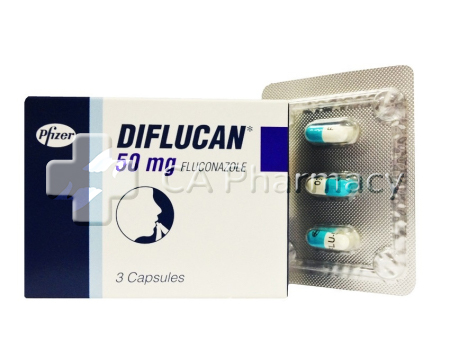What is diflucan fluconazole used for?
Diflucan (fluconazole) is an antifungal medication that is primarily used to treat fungal infections caused by yeast. It is commonly prescribed to treat various types of yeast infections, including vaginal yeast infections (vulvovaginal candidiasis), oral thrush (oral candidiasis), and skin infections caused by yeast.
Yeast infections are caused by an overgrowth of a type of fungus called Candida. Diflucan works by inhibiting the growth of this fungus, thereby stopping the infection from spreading and helping to alleviate the associated symptoms.
In addition to treating yeast infections, Diflucan may also be prescribed to prevent fungal infections in individuals with weakened immune systems, such as those with HIV/AIDS or undergoing chemotherapy. It can be used to prevent certain fungal infections that may occur after bone marrow transplantation as well.
Diflucan is available in various forms, including oral tablets, oral suspension, and intravenous (IV) injection. The dosing and duration of treatment depend on the specific infection being treated and the individual's response to the medication. It is important to follow the prescribed dosing instructions and complete the full course of treatment, even if symptoms improve before the medication is finished.
As with any medication, Diflucan may cause side effects. Common side effects include headache, nausea, abdominal pain, and diarrhea. Less common but more serious side effects may include liver damage and allergic reactions.

Yeast infection treatment for Diflucan fluconazole pills
- Diflucan fluconazole is an antifungal medication used to treat fungal and yeast infections.
- It is commonly prescribed for the treatment of vaginal yeast infections, oral thrush, and certain types of systemic fungal infections.
- Diflucan fluconazole works by inhibiting the growth of fungi, ultimately clearing the infection.
- This medication is available in tablet form and is usually taken orally.
- The dosing of diflucan fluconazole varies depending on the type and severity of the infection being treated.
- Common side effects of diflucan fluconazole include nausea, headache, and abdominal pain.
- In rare cases, it may cause more serious adverse effects such as liver damage or allergic reactions.
- Diflucan fluconazole should be used with caution in individuals with liver or kidney disease, as well as those taking certain medications that may interact with it.
- It is important to disclose all medications, supplements, and medical conditions to the healthcare provider before starting diflucan fluconazole.
- While diflucan fluconazole is generally safe and effective, there are some contraindications and warnings associated with its use.
- If any unusual or severe side effects occur while taking diflucan fluconazole, it is important to seek medical attention immediately.
What are the side effects of diflucan fluconazole?
Diflucan (fluconazole) is an antifungal medication used to treat various fungal infections, including yeast infections caused by Candida. While Diflucan is generally safe and well-tolerated, like any medication, it can have side effects.
The most common side effects of Diflucan include nausea, vomiting, diarrhea, stomach pain, and headache. These side effects are usually mild and go away on their own. However, if they persist or become severe, it is important to seek medical attention.
In some cases, Diflucan can cause allergic reactions, which can manifest as rash, itching, swelling, severe dizziness, or difficulty breathing. If you experience any of these symptoms, it is crucial to stop taking the medication and seek immediate medical help.
Diflucan may also have some less common side effects. These can include liver problems, such as increased liver enzymes or jaundice (yellowing of the skin or eyes), and abnormal heart rhythm. Although these side effects are rare, it is important to be aware of them, especially if you have any underlying medical conditions.
It is worth noting that Diflucan can interact with other medications, such as blood thinners, anticoagulants, and some types of antidepressants. Therefore, it is essential to inform your healthcare provider about all the medications you are taking to avoid any potential drug interactions.
Is diflucan fluconazole safe for pregnant women?
Diflucan (fluconazole) is an antifungal medication that is commonly used to treat various fungal infections, including yeast infections caused by the Candida fungus. However, when it comes to the safety of using Diflucan during pregnancy, it is important to consider certain factors.
While Diflucan is generally considered safe for use during pregnancy, it is recommended to use it only when the benefits outweigh the potential risks. This means that your healthcare provider will carefully evaluate your individual situation before prescribing Diflucan during pregnancy.
Several studies have found no increased risk of birth defects or other adverse effects when Diflucan is used in early pregnancy. However, some studies suggest a slightly increased risk of certain birth defects, particularly when high doses of Diflucan (over 400mg) are taken. Therefore, the recommended dose for pregnant women is typically lower (usually 150mg) to minimize any potential risks.
It is important to consult with your healthcare provider before using Diflucan if you are pregnant or planning to become pregnant. They will consider factors such as the severity of your infection, the potential risks, and alternative treatment options. Additionally, if you are already taking other medications, it is essential to mention them to your healthcare provider as there may be possible drug interactions.
In terms of side effects, Diflucan is generally well-tolerated.
How often should diflucan fluconazole be taken?
Diflucan, or fluconazole, is an antifungal medication commonly used to treat fungal infections caused by yeast. The dosing of Diflucan depends on the specific infection being treated and other factors such as the patient's age and overall health condition. It is important to follow the directions given by your healthcare provider or the instructions on the prescription label.
For the treatment of vaginal yeast infections, a single dose of Diflucan is usually sufficient. However, your doctor may recommend a second dose if symptoms persist or if the infection is severe.
In the case of other types of yeast infections, such as oral thrush or esophageal candidiasis, the dosing may vary. Typically, a daily dose of Diflucan ranging from 100 to 400 milligrams is prescribed for a certain duration, depending on the severity and location of the infection.
It is crucial to complete the full course of treatment, even if symptoms improve before finishing the prescribed dose. This ensures that the infection is fully eradicated and reduces the risk of recurrence.
If you forget to take a dose, take it as soon as you remember. However, if it is close to the time for your next scheduled dose, skip the missed dose and continue with your regular dosing schedule.
Like any medication, Diflucan may cause side effects. Common side effects include nausea, abdominal pain, headache, and diarrhea.

What dosage of diflucan fluconazole should be taken?
The dosage of Diflucan (fluconazole) typically depends on the specific fungal infection being treated. It is important to follow your doctor's instructions and the directions on the prescription label. However, for most cases, the recommended dosage for adults is a single 150 mg tablet.
For vaginal yeast infections, a single 150 mg dose of Diflucan is usually sufficient. Some mild cases may require a second dose after 3 days. However, if you are experiencing recurrent yeast infections, your doctor may prescribe a longer treatment course.
For other types of fungal infections, such as oral thrush or systemic infections, the dosage and duration of treatment may vary. Your doctor will determine the appropriate dosage based on the severity and location of the infection.
It is important to note that Diflucan should not be taken without a prescription or recommendation from a healthcare professional. Self-diagnosis and self-medication can lead to ineffective treatment or potential side effects.
If you have any concerns or questions about the dosage of Diflucan, it is best to consult with your doctor or pharmacist. They can provide personalized advice based on your specific condition and medical history.
As with any medication, Diflucan may cause side effects, although not everyone experiences them. Common side effects may include nausea, headache, or abdominal pain. If you experience any severe or persistent side effects, you should seek medical attention.


































